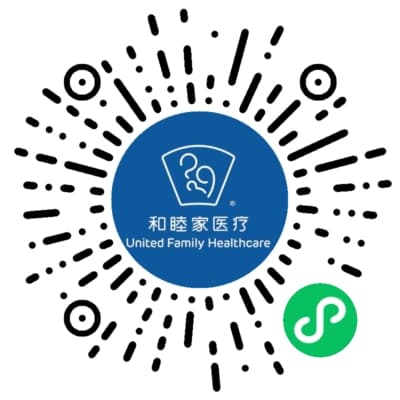General introduction
The United Family Healthcare (UFH) Family Medicine Training Program was created to meet the staffing needs of our primary care clinics throughout the network.

The UFH Family Medicine curriculum is adapted from training programs in the United States, Canada, the United Kingdom, and Australia. Training is divided into a three-tier system, averaging twelve-months per tier. Training periods may vary depending on each individual’s prior work experience.
Completion of each tier will be evaluated using preceptor evaluations and the Academy of American Family Physicians in-service exams. Preceptors and faculty members are experienced clinicians with teaching experience from both within and outside of the UFH system.
Why does United Family Hospital have Fellows?
In order for United Family Hospital to continue to provide consistently excellent family medical care, our Family Medicine Training Program offers Fellows the opportunity to work under the supervision of senior colleagues to broaden their experience of providing primary medical care. Started in November 2013, the goal of this internal program is to train Fellows in family medicine so that they can provide care at the standard expected in an international setting.
Our mission is to train holistic, patient-centered family medicine physicians who will become future leaders in transforming healthcare in China. Our graduates will have a firm foundation in the principles of comprehensive, coordinated, and continuous primary care and recognize their role in the community at large.

What is included in this 3-tier training?
Similar to a family medicine post-graduate program in other countries, Fellows have rotations in pediatrics, internal medicine, obstetrics and gynecology, surgery, orthopedics, mental health, inpatient pediatrics and adult medicine, emergency medicine, research, evidence based medicine, and more. They meet weekly with fellows from other campuses for workshops and didactic teaching.
Most importantly, Fellows learn to incorporate all of this knowledge into holistic care so they are able to care for most of the acute and chronic needs of any patient of any age who comes to the clinic or hospital. This is a unique type of training and unique approach more familiar to the traditional Chinese practitioners than the current practice in China. Each rotation is evaluated by preceptors.

Who teaches the Fellows?
Fellows learn by working alongside our experienced attending physicians, bringing expertise from many locations including China, United States, Australia and UK. In addition, they develop their own panel of patients in their own clinics, implementing what they learn.
Who are the Family Medicine Fellows?
Fellows are clinical physicians new to UFH who have a master’s level or higher medical degree and a valid medical license in China. All of our current and graduated fellows are Chinese nationals. They have already completed the mandatory government three-year residency rotation program and often have overseas clinical experience. The Fellows are fully qualified doctors with previous experience in various specialties with a good command of both Mandarin and English but new to United Family Healthcare. Our Fellows are all fully licensed Chinese doctors who have either completed a Chinese FM residency or achieved attending status at another hospital.

What results have been demonstrated?
Since the program started in 2013, there have been eight graduated Family Medicine Fellows all of whom have continued to practice as Family Medicine physicians within the United Family Healthcare system giving the program a 100% retention rate.
Regarding the number of didactic hours of tuition – which doesn’t reflect the much more important clinical teaching – the program has around 216 hours a year of classroom teaching (4.5 hours per week minus 1 month for holiday weeks) plus core skills each year (120 hours). This is estimated at approximately 336 hours of direct classroom teaching (primarily Family Medicine faculty) plus clinical hands-on teaching by both Family Medicine and other faculty.

How does this benefit patients?
Patients seen by Fellows will also be reviewed by one of our attending physicians. In addition to helping our Fellows gain the required expertise, our experience is that patients also benefit from the time and care they receive from our Fellows and their supervisors together, because the program focuses on excellent medical practice using the most up-to-date evidence. Fellows often have more time to spend with patients on patient education and they more closely follow-up by email or phone than the attending physician.
Patients also have an increased choice when making a doctor’s appointment. If patients make an appointment with a senior Fellow, they will be told the doctor is a Fellow. If an appointment is made with an attending physician, a Fellow may be working with them.







